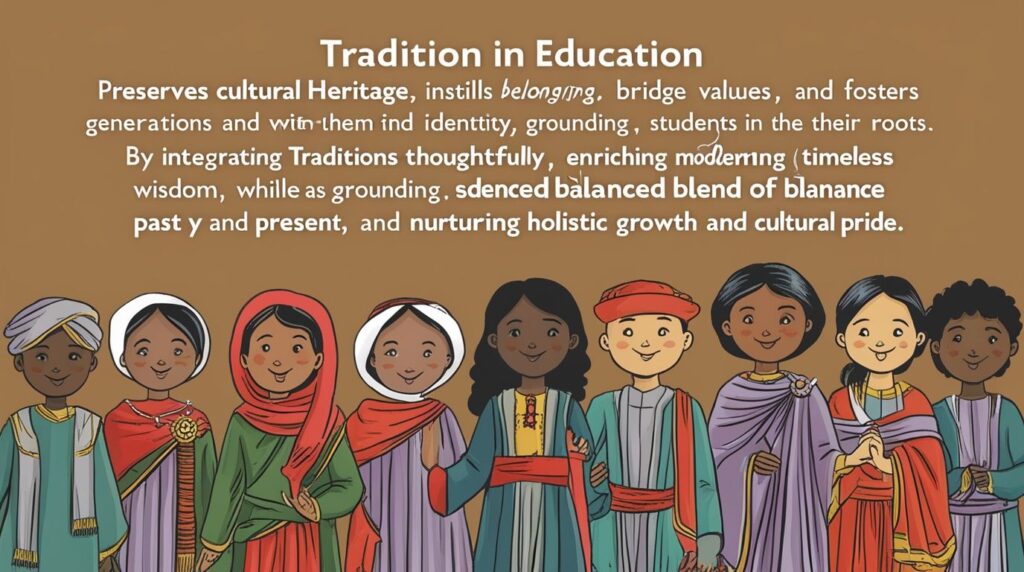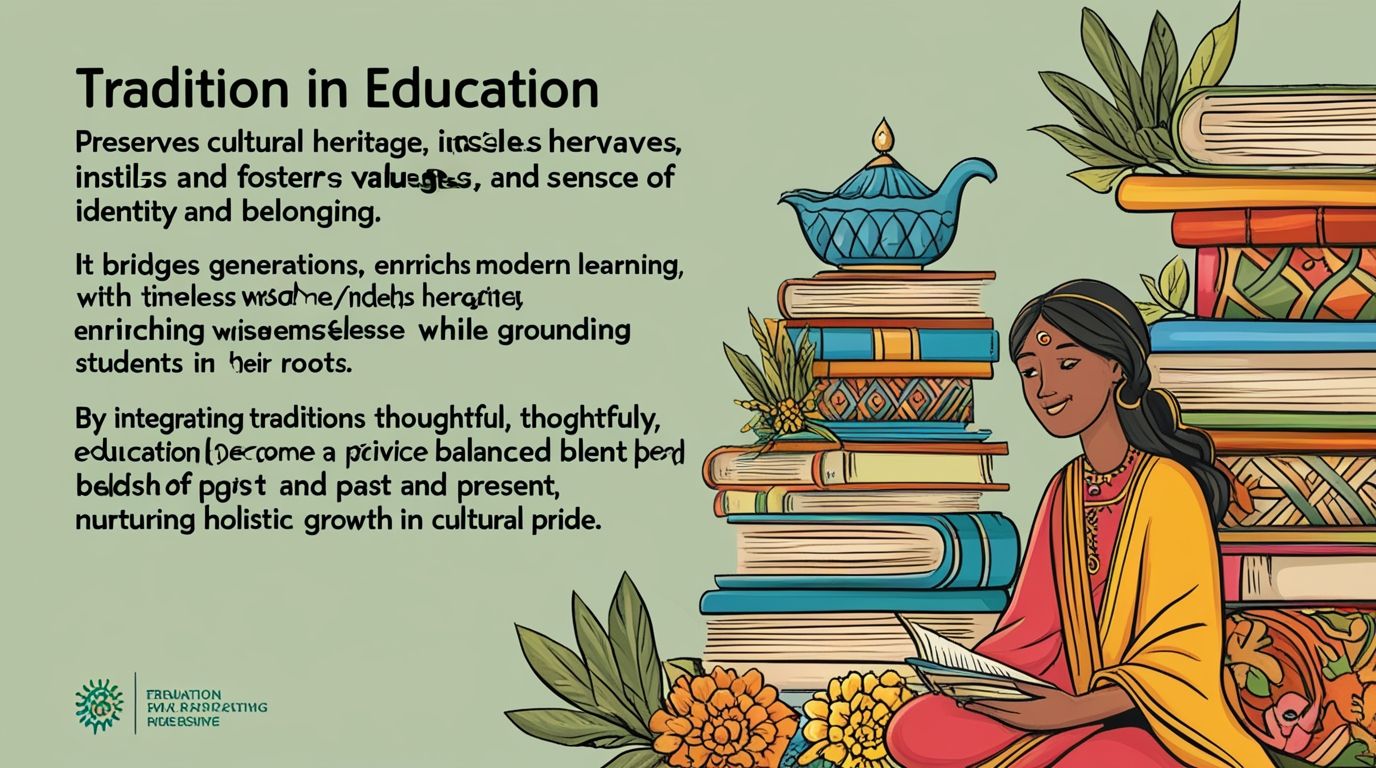The Importance of Tradition in Education, Tradition forms the backbone of educational systems worldwide. Rooted in history and enriched by cultural practices, traditions serve as the bridge between generations, connecting past wisdom to the challenges of the present. In education, traditions preserve cultural heritage, instill moral values, and foster a sense of identity, all while complementing modern approaches to learning.
Preservation of Cultural Heritage
Traditions in education play a vital role in preserving cultural heritage. Educational rituals, such as celebrating historical events or observing national holidays, remind students of their roots and the significance of their ancestry. For example, storytelling, an ancient tradition, continues to be an effective educational tool in teaching morals, history, and societal norms. By integrating such traditions into the curriculum, educators ensure that the essence of a culture is passed on to future generations.
Instilling Moral and Ethical Values
Traditions often carry implicit lessons about morality and ethics. Whether through morning assemblies, honor codes, or celebrations of cultural festivals, students learn the importance of respect, honesty, and community. Traditional practices such as mentoring by elders or communal learning reinforce values like empathy and cooperation. These timeless lessons lay the foundation for well-rounded individuals capable of navigating modern complexities with integrity.
Fostering a Sense of Identity and Belonging
Incorporating traditions into education helps students develop a sense of identity and belonging. For instance, indigenous education systems often emphasize traditional crafts, dances, and languages, empowering students to take pride in their heritage. This connection to one’s culture fosters confidence and a deeper understanding of oneself, which are critical for personal and academic growth.

Bridging Generations
Tradition serves as a medium through which generations connect and exchange wisdom. Rituals such as parent-teacher meetings or grandparent storytelling sessions in schools encourage intergenerational dialogue. This not only enriches students’ learning experiences but also reinforces familial and societal bonds. Traditional ceremonies like graduations or annual days remind students of their journey, reinforcing a sense of accomplishment and continuity.
Complementing Modern Education
While modern education emphasizes technology, critical thinking, and innovation, traditions provide a grounding framework. For example, practices like debate, which have historical roots, align well with contemporary educational goals of improving communication and analytical skills. Similarly, traditional learning systems such as Gurukul in India or apprenticeship models in Europe emphasize holistic development, combining practical knowledge with character building.
Challenges and Adaptations
Despite its significance, integrating tradition into education faces challenges in the fast-paced modern world. Globalization, technological advancements, and changing societal norms often overshadow traditional practices. However, educational institutions can adapt by modernizing traditions without diluting their essence. For instance, digital platforms can be used to teach traditional arts or to celebrate cultural festivals virtually, ensuring accessibility and relevance.
Conclusion
The importance of tradition in education lies in its ability to preserve the past while enriching the present. It instills values, fosters identity, and bridges generational gaps, forming a comprehensive approach to learning. By thoughtfully integrating traditions into modern education, educators can create a balanced system that prepares students for the future while keeping them connected to their roots. Tradition, when embraced alongside innovation, ensures a holistic and culturally rich educational experience, essential for the development of enlightened global citizens.

6 thoughts on “The Importance of Tradition in Education”
Comments are closed.